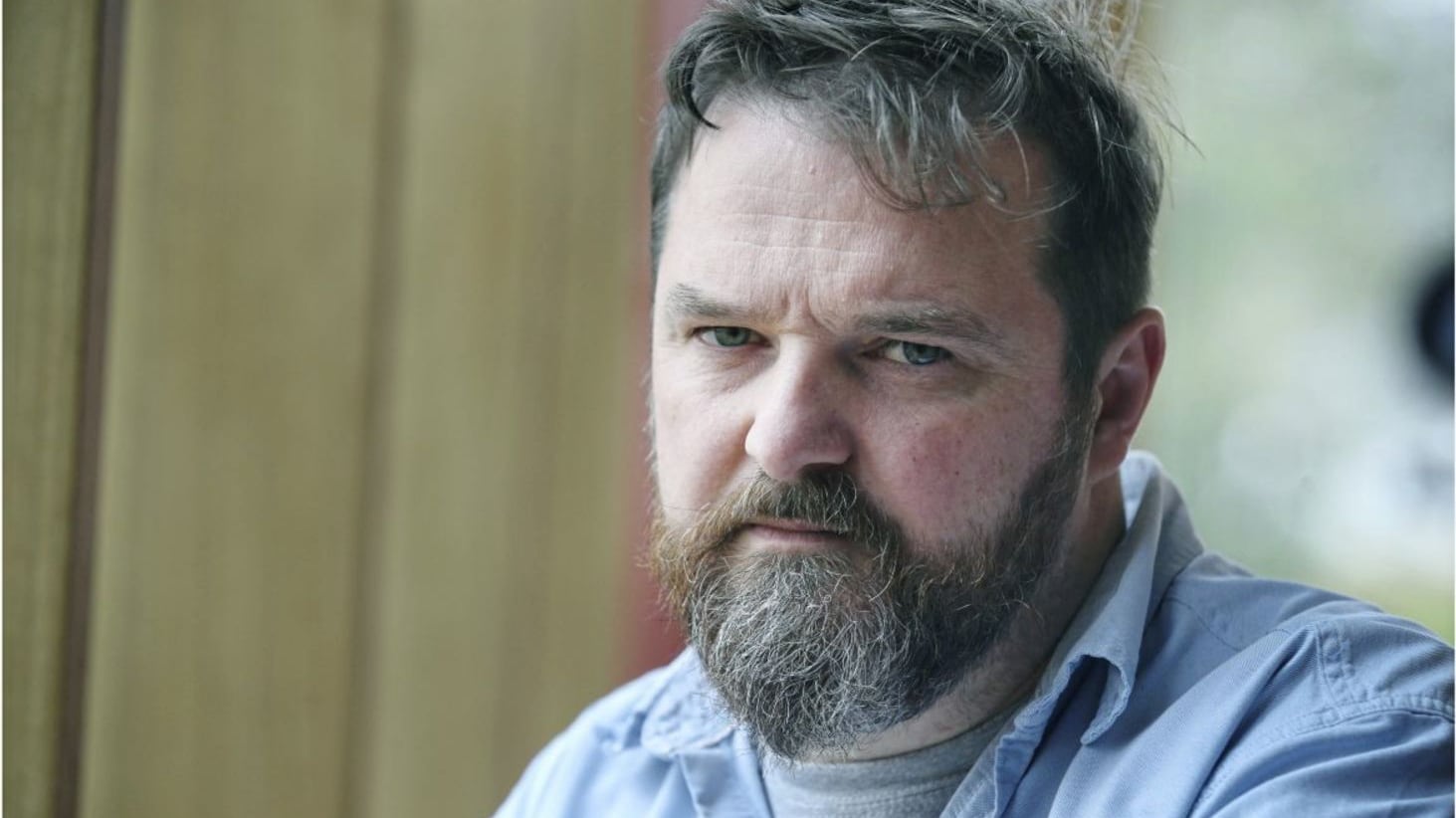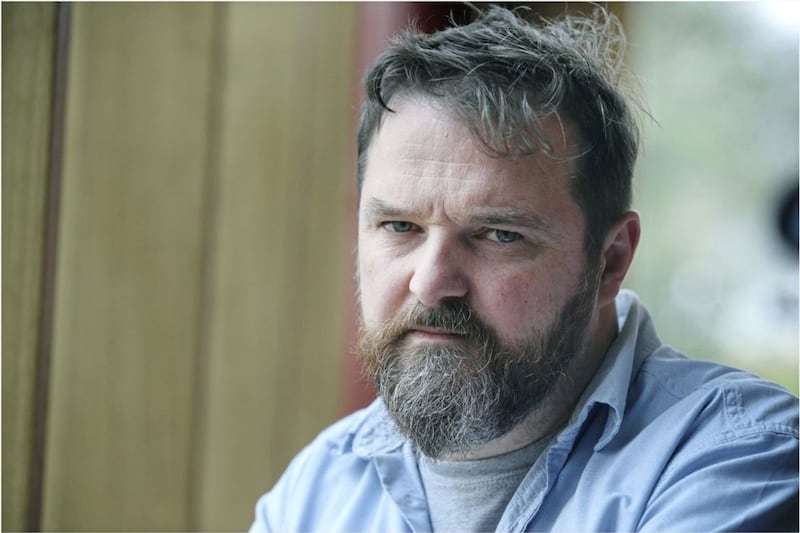SOMEHOW, subconsciously, David Ireland has come to think that he wants to offend people. Certainly, his plays keep on courting controversy – and winning awards.
In Cyprus Avenue, which has just finished a long London run, Stephen Rea plays a deranged unionist who becomes obsessed with the idea that his grandchild is Gerry Adams.
"He even puts a beard and glasses on the child, who is a girl," Ireland tells me.
"Production was held back because there were some worries than Adams might sue. I don't know all the ins and outs, but as far as I know he was never asked [for permission to use his name].
"The play makes it clear that Rea's character is mentally ill."
Nor did Ireland connect with Van Morrison about using the title of one of his most iconic songs.
"It's really as much to do with the street as the song, although I did originally use some of the lyrics from the song in the play. But I had to cut them because we had not sought permission.
"I love the song. I know the area, having lived in Castlereagh Street for a while, but thematically there is not really a connection between the song and the play."
Ireland has been on a roll since Cyprus Avenue won the prestigious James Tait Black Award and the Irish Times Theatre Award for best play two years ago. Then came the parallel success of his play Ulster American – soon to be performed at the Lyric in Belfast – which won accolades at the Edinburgh Festival last autumn.
Ireland has begun to be mentioned in the same breath as groundbreaking predecessors like Martin McDonagh and Conor McPherson, stretching back as far as Stewart Parker.
Then the involvement of Rea – who he says "loved" playing an on-the-edge unionist – has brought in the sensibility and authority of Brian Friel and the Field Day Theatre company, for which Ireland is already writing his next work.
But he's not letting such august company go to his head. "My wife keeps me in check, along with having young children," he said.
"It is strange, but certainly the awards help to get me more work. They might bestow some sort of legitimacy but I still feel like an out-of-work actor."
Ireland (42) was born in Sandy Row in Belfast but spent the greater part of growing up in Ballybeen, Dundonald, attending Brooklands Primary School and then Belfast Royal Academical Institution.
Nowadays, he lives in Glasgow with his partner Jennifer, who is from Paisley in Scotland, and their children Ada (4) and Elijah (3).
Ireland was just a struggling actor when he first met Jennifer in Glasgow while performing in an avant garde piece called Tonight David Ireland will Lecture, Dance and Box.
"I had actually given up acting and come back to live with my mum in Dundonald, thinking if I was trying to write about Belfast, I should at least be close to it. And then I was invited to do this one-man show.
"As part of it I had to select a member of the audience to play my wife. The first time I saw this most beautiful girl so of course I chose her – and a year later we were married.
"She was just about to go for work to Paris – she is also in the theatre – so we had a long-distance relationship for a while. But now we have been married seven years."
Though Ireland may prefer the home-bird life, his plays are being performed all over the world including Australia, where Ulster American has also just finished, moving on to Auckland in New Zealand as well as the United States.
Early performances of Cyprus Avenue had people storming out of the Royal Court Theatre in London, while a scene in Ulster American, in which a character who is a Hollywood actor suggests an act of criminal violence, also provoked walkouts. Some have suggested the plays should contain warnings.
When it was on in New York, many Irish Americans hated the latter play.
"They were completely horrified and confused by it. And of course the main character in the play, like Irish Americans everywhere, is more Irish than anyone else. My intentions are never to offend but when I am writing a play I never think about the audience. It is about the play and what happens next," Ireland says.
"People always say to me, 'That is going to upset people', and I go, 'Really?'. But then when I see it I can understand and I can see that maybe some part of me wants to offend people. I suppose that, subconsciously, I may want to upset people or I wouldn't write the things I write."
Yet, in a sign of increased sensitivity, perhaps, Ireland removed the 'n' word from an opening scene in 'Cyprus'.
"I was trying to draw parallels between racism and sectarianism but, in performance, I could see the word was not justified. It didn't quite work," he says.
Ireland's view of his own identity also appears to remain a work in progress. He has never taken the time, he says, to explore the origin of his own surname. And he is reluctant to be drawn on his concerns about the current state of unionism.
"Because I'm living in Scotland, I feel a bit divorced from it all and I used to hate people from here who move away and then pronounce on what is going on. I hesitate on becoming one of those people.
"But I do feel unionism is not in a very strong position at the moment, feeding into the general instability throughout the UK as a result of Brexit. Yet the Union may begin to break up in Scotland first, rather than Northern Ireland."
Then he goes further, arguing that he has come to the conclusion that much of the rest of the world is becoming like Northern Ireland was in the 1970s and 80s.
"It's from what I remember growing up, and how polarised it was. The whole place was defined by whether you were a unionist or nationalist. People in England would say to me 'Why do you care so much about that? Why can you just all not get along?'.
"But now it feels like they are the same; you are defined by whether you are a leaver or remainer. And as for the election of Trump, who could have foreseen that?"
His next play, which is nearing completion, was initially described as a "wild, dark comedy" on the issue of child sexual abuse.
"It started off as a comedy, but I have felt that is inappropriate," he advises.
Ireland looks forward to seeing how Ulster American goes down on home turf at the Lyric, where he was formerly writer-in-residence.
"Always when I am writing, I am writing for Belfast. And I know there are jokes in there that only Belfast people will get," he says.
:: Ulster American will be at the Lyric theatre, Belfast, from Wednesday April 24 to Sunday April 28. Showtimes and bookings via Lyrictheatre.co.uk.





